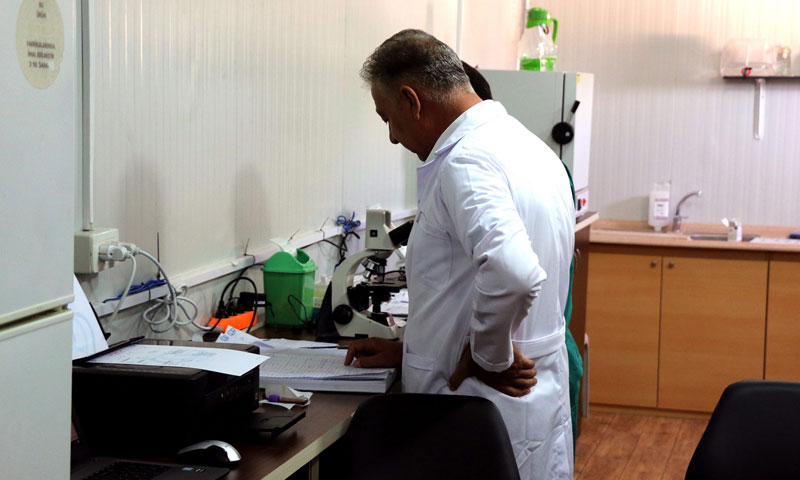Turkey aims to organize medical work in the rural areas of northern Aleppo and provide medical services to the people in the area, through the construction of hospitals and launching courses for young people in order to prepare them for the medical field.
After supporting the “Free Army” factions and expelling the “Islamic State” (ISIS) from the area, Turkey built three hospitals, two in the city of al-Bab and the al-Rai, with 200 beds capacity, and the third in the city of Mare, with a capacity of 75 beds, with an area of 30,000 square meters for the al-Bab’s hospital, 20 thousand square meters for al-Rai and ten thousand square meters allocated for Mare’s hospital.
Because these hospitals require experienced medical staffs, a number of local councils in the area (Akhtarin, Aazaz, Al-Rai and Souran) have announced six-month nursing courses for, 20 to 40 years old, men and women, who have a high school certificate. The council at the city of Azaz stipulated that the applicants be students at the first or second year of Healthcare Institutes, who have not yet got a diploma.
Providing Healthcare Centers with Medical Personnel
The courses aim to provide the area’s hospitals, health centers and clinics with medical staff, including nurses, nursing assistants and administrators, according to what the Head of the Akhatrin Local Council Khalid Dibo has told Enab Baladi.
The Director of the Public Relations Department at the al-Rai Local Council Alaa Hamad pointed out to Enab Baladi that the course aims to reduce violations committed in the field of nursing, since most workers do not hold certificates.
Lately, areas in Northern Syria have started witnessing the spread of private institutes and events by civil society organizations that offer day-long nursing courses, which rely on trainers who “do not have the appropriate qualifications” and give trainees certificates at the end of training.
As a result, the Syndicate of Nursing, Technicians and Midwives in the northern and eastern countryside of Aleppo issued a statement on October 29 stating that it does not recognize nursing certificates granted by private institutes.
“We do not recognize the certificates issued by these institutes and courses, and we ask the concerned authorities to take appropriate measures,” the statement said.
The Syndicate confirmed that it would only recognize the certificates issued by the Medical Technology Institutes of the Ministry of Education and the Healthcare Institutes of the Ministry of Healthcare.
Syrian Doctors Oppose the Idea
The course aims at male and female students. Dibo explained that the number required in Akhtarin is 30 women trainees and ten to twenty male trainees, while the number of beneficiaries in the city of al-Rai will be 70 people, 20 female trainees and male 20 trainees.
At the end of the course, the trainees will receive a certificate from the Director of Healthcare in the Turkish city of Kilis, according to Hamad, and will be officially employed in the hospitals that will open in the area in the coming period, as well as the already present healthcare centers.
Hamad pointed out that some Syrian doctors opposed the idea because the duration of the course, which is six months, is insufficient to graduate nurses and nursing assistants, based on the fact that the nursing students used to study for four years at least to get the needed qualification that allow them to enter the medical field.

